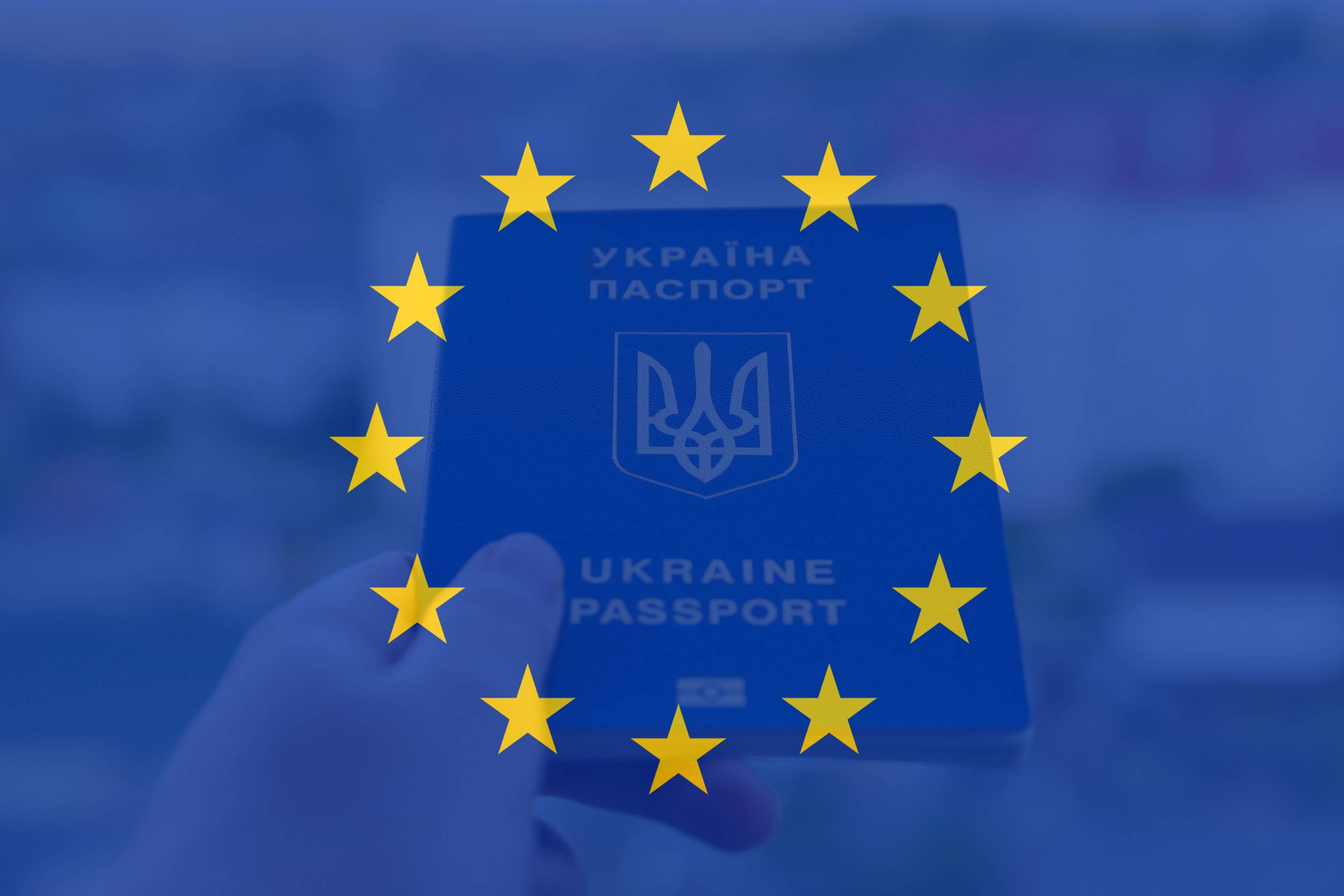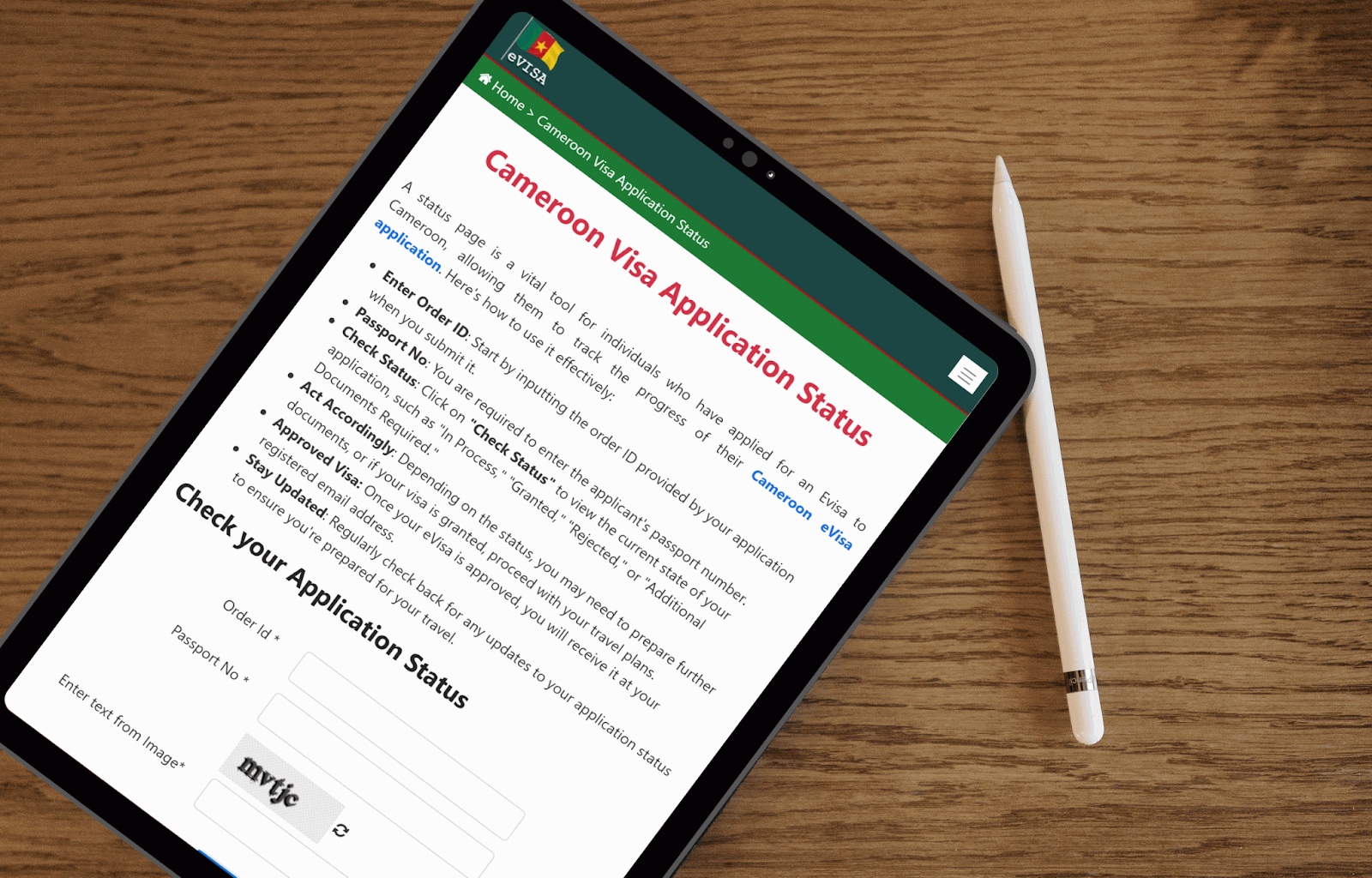A Guide to the Cameroon eVisa for EU/Schengen Citizens

Cameroon is increasingly accessible to European travelers thanks to its streamlined eVisa system. For citizens of the European Union (EU) and the broader Schengen Area, obtaining a visa for Cameroon is now a more convenient online process, eliminating the need for embassy visits in many cases. This guide provides a detailed overview of the Cameroon eVisa for EU/Schengen passport holders, from application to arrival. To ensure a hassle-free entry, it’s essential to apply for Cameroon eVisa through the official online portal and follow the outlined steps carefully.
Do Schengen Passport Holders Need a Visa to Enter Cameroon?
Yes, citizens of Schengen Passport countries generally need a visa to enter Cameroon. Cameroon does not currently offer visa-free entry for most EU or Schengen Area nationals for tourism or business purposes. The eVisa system has simplified the application, but a pre-obtained visa authorization is still mandatory.
Cameroon eVisa Requirements for EU/Schengen Citizens
The general requirements for EU/Schengen citizens applying for a Cameroon eVisa are similar to those for other nationalities, but with a clear understanding of the specifics:

- Valid Passport: Your passport must be valid for at least six (6) months beyond your intended date of departure from Cameroon and contain at least two blank pages for the visa sticker.
- Recent Passport-Sized Photograph: A clear, recent (usually taken within the last 6 months) color photo with a white background, meeting standard passport photo specifications.
- Flight Itinerary: Confirmed round-trip flight reservations showing your entry and exit dates.
- Proof of Accommodation: This can be a confirmed hotel booking for your entire stay, or a legalized invitation letter (Certificat d'Hébergement) from a host in Cameroon, endorsed by local authorities (e.g., Mayor's office or police).
- Proof of Financial Means: Bank statements or other financial documents demonstrating sufficient funds to cover your expenses during your stay.
- Mandatory Yellow Fever Vaccination Certificate: A valid International Certificate of Vaccination (Yellow Card) proving you've been vaccinated against Yellow Fever. This is a crucial and non-negotiable entry requirement.
- Purpose-Specific Documents:
- For Tourist eVisa: As mentioned above, hotel bookings or legalized invitation letter.
- For Business eVisa: An official invitation letter from a Cameroonian company/organization (often requiring legalization in Cameroon), and a letter from your EU-based company detailing the purpose and duration of your business trip.
- For Transit eVisa: Proof of onward travel (flight ticket to your next destination) and a visa for that destination if required.
Eligible Schengen Countries for the Cameroon eVisa Program
The Cameroon eVisa program is generally available to citizens of all countries within the Schengen Area and the broader European Union. This includes, but is not limited to, citizens of:
Austria
Belgium
Bulgaria
Croatia
Cyprus
Czechia
Denmark
Estonia
Finland
France
Germany
Greece
Hungary
Iceland
Ireland
Italy
Latvia
Liechtenstein
Lithuania
Luxembourg
Malta
Netherlands
Norway
Poland
Portugal
Romania
Slovakia
Slovenia
Spain
Sweden
Switzerland
Applying for a Cameroon eVisa with a Schengen Passport
The application process is entirely online and user-friendly:
- Complete the Online Application: Go to the Cameroon eVisa website, create an account, and fill in the eVisa form. Make sure you choose the correct visa type based on your travel purpose.
- Upload Documents and Pay: Upload your passport, photo, and any required documents. Then pay the visa fee online. Make sure all files are clear and in the correct format.
- Get Approval and Travel: After approval, you'll receive your eVisa by email. Print it and carry it with your original documents. When you arrive in Cameroon, officials will verify your details and place the visa sticker in your passport.
Cameroon eVisa Photo and Document Upload Guidelines for European Applicants
Photo: Must be recent (last 6 months), color, passport-sized, with a plain white or off-white background. Your face should be fully visible, looking directly at the camera, with a neutral expression. No hats, glasses, or head coverings (unless for religious reasons, and then facial features must remain visible).

Documents:
- Upload clear, high-resolution scans or photos. Blurry, cropped, or unreadable documents will lead to delays or rejection.
- Ensure file formats are as specified (usually PDF or JPEG).
- File sizes should adhere to the maximum limits indicated on the portal.
- For multi-page documents (like bank statements or old passports), ensure all relevant pages are included.
How Long Does It Take to Process a Cameroon eVisa for EU Citizens?
The standard processing time for a Cameroon eVisa for EU citizens is typically 3 to 7 business days after online payment and submission. An express processing option is usually available for an additional fee, potentially reducing the processing time to 24 to 72 hours.
It is highly recommended to apply at least 10-14 days before your intended travel date to account for any unforeseen delays or requests for additional information.
Cameroon eVisa Tracking and Approval Status for Schengen Nationals
Once you apply, you can generally track your application status by logging into your account on the official Cameroon eVisa tracking portal. The system will update you on whether your application is "Submitted," "Under Review," "Approved," or "Rejected." You will receive an email notification upon approval.

What to Do If Your Cameroon eVisa Application Is Rejected or Incomplete
Sometimes things don’t go as planned, and your eVisa application might be rejected or sent back for more information. Here's how to handle each situation calmly and correctly:
If Your Application Is Rejected
You’ll usually get an email explaining why. Common reasons include missing documents, unclear uploads, or mismatched details. Read the message carefully, fix the problem, and submit a new application with the correct documents and a new payment.
If Your Application Is Incomplete
The system or a visa officer may ask you to add or correct something. Just log into your eVisa account, upload the missing files or details, and resubmit. Do this quickly to avoid any travel delays.
Cameroon eVisa Fees for Schengen Passport Holders
The cost of a Cameroon eVisa for Schengen citizens depends on several factors, including the type of visa (Tourist, Business, etc.), number of entries, and the processing speed (standard or express). To find the exact fee for your nationality and visa type, visit the official Cameroon eVisa fee page. The site provides a fee calculator tool that helps you check the correct amount based on your travel plans.
How Long Is a Cameroon eVisa Valid for EU Citizens?
Here’s what EU citizens need to know about Cameroon eVisa validity:
- For Short-Stay: Typically valid for up to 180 days (6 months) from the date of issuance or date of first entry, depending on the specific wording on your visa sticker.
- For Long-Stay: Valid for up to 360 days (1 year).
- For Transit: Valid for a shorter duration, usually between 4 to 30 days.
The actual validity period and permitted duration of stay will be clearly printed on the physical visa sticker affixed to your passport upon arrival in Cameroon.
Can Schengen Nationals Extend Their Cameroon eVisa While in the Country?
Yes, it is generally possible to extend a Cameroon eVisa for Schengen nationals while in Cameroon. However, this process is done in-country through the local immigration office (General Delegation for National Security - DGSN), not online. You must apply for an extension well before your current visa expires and provide a valid reason for the extension, along with supporting documents and additional fees. Extensions are not guaranteed.
What to Expect Upon Arrival in Cameroon with a Valid eVisa (for EU Travelers)
Upon landing at a designated international airport in Cameroon (e.g., Douala International Airport - DLA, Yaoundé Nsimalen International Airport - NSI), EU travelers with an eVisa can expect a streamlined process:
- Present Documents: Have your valid passport, the printed eVisa authorization (with QR code), and your Yellow Fever Vaccination Certificate ready.
- Biometric Enrollment: You will proceed to a designated immigration counter where your fingerprints will be taken, and a digital photograph will be captured. This is a mandatory step.
- Visa Sticker Affixation: Once your biometrics are successfully captured and verified, the immigration officer will affix the physical visa sticker directly into a blank page in your passport.
- Immigration Clearance: The officer will review your documents and stamped passport, then grant you entry into Cameroon.
Biometric Enrollment Process for Schengen Passport Holders Upon Entry
The biometric enrollment process is a standard procedure at Cameroonian ports of entry for eVisa holders. It involves:
- Fingerprint Scanning: Usually, all ten fingerprints are electronically scanned.
- Digital Photograph: A digital photo of your face will be taken.
This process is quick and efficient, designed to verify your identity and link your digital eVisa application to your physical presence.
Designated Airports and Entry Points That Accept eVisas in Cameroon
The Cameroon eVisa is primarily accepted at the country's major international airports:
- Douala International Airport (DLA)
- Yaoundé Nsimalen International Airport (NSI)
While land borders are increasingly equipped, flying into one of these major airports is the most reliable and common method for eVisa holders. Always confirm if your specific land border crossing is set up for eVisa processing.
Traveling to Cameroon from Another African Country with a Schengen Passport
Yes, you can apply for a Cameroon eVisa from anywhere in the world, regardless of your current location. If you are traveling from another African country with your Schengen passport, the application process is the same as if you were applying from Europe. Ensure you have all the required documents readily available electronically.
Do Dual Citizens with Schengen and African Passports Need a Cameroon eVisa?
This can be a complex area. Cameroon does not formally recognize dual citizenship in all contexts, and travelers are generally advised to enter the country using the passport they intend to use for their departure and with which they obtained their visa.
- If your African passport is from a country that has visa-free access to Cameroon: You should typically use your African passport for entry.
- If your African passport requires a visa, or if you prefer to travel on your Schengen passport: You would apply for the Cameroon eVisa using your Schengen passport.
- Recommendation: It's best to consult the nearest diplomatic mission or consulate if you hold dual citizenship to understand the most appropriate and trouble-free way to enter. Generally, applying with the passport you intend to exit with is the safest approach.
Can Schengen Passport Holders Apply for a Cameroon eVisa From Outside Europe?
Yes, absolutely. The Cameroon eVisa system is global. Schengen passport holders can apply for and receive a Cameroon eVisa from any country in the world, as long as they have internet access and can upload the required documents.
Is a Cameroon eVisa Accepted for Multiple Entries for Schengen Citizens?
Yes, the Cameroon eVisa system offers options for multiple-entry visas for both short-stay (Tourist and Business) and long-stay categories. When you apply, you will typically have the choice to select single or multiple entries. If you opt for a multiple-entry eVisa, you can enter and exit Cameroon multiple times within the validity period of the visa, provided each stay does not exceed the maximum duration per visit.
Health and Safety Requirements for EU Travelers to Cameroon (Vaccinations & Insurance)
Before you go, it’s important to understand the health and safety rules, especially vaccination and insurance requirements, to ensure a safe and smooth journey
- Yellow Fever Vaccination: As reiterated, this is mandatory for all travelers aged 9 months and above entering Cameroon. You must present your valid International Certificate of Vaccination (Yellow Card) upon arrival.
- Other Recommended Vaccinations: It is highly recommended to be vaccinated against Hepatitis A, Typhoid, Tetanus, Diphtheria, Polio, and Measles, Mumps, and Rubella (MMR). Rabies and Hepatitis B vaccinations may also be advised depending on your travel plans. Consult your doctor or a travel clinic well in advance.
- Malaria Prophylaxis: Cameroon is a high-risk malaria zone. Anti-malarial medication is strongly recommended.
- Comprehensive Travel Insurance: It is highly advisable to obtain comprehensive travel and medical insurance before traveling to Cameroon. Ensure it covers emergency medical treatment, medical evacuation (which can be very expensive from remote areas), repatriation, and personal liability. Your European health insurance card (EHIC) will not be valid in Cameroon.
Tips to Avoid Cameroon eVisa Delays or Rejections as an EU Applicant
Here are some helpful tips to avoid Cameroon eVisa delays or rejections as an EU applicant, written in simple and clear language:
- Apply Early: Give yourself ample time (at least 2-4 weeks) before your travel date.
- Accuracy is Key: Double-check all information against your passport. Even minor typos can cause issues.
- High-Quality Documents: Ensure all uploaded documents are clear, legible, and meet the specified file size and format requirements.
- Correct Visa Type: Select the visa type that accurately reflects your purpose of travel (Tourist vs. Business).
- Valid Invitation Letter: If you require an invitation letter, ensure it is properly drafted, includes all necessary details, and is legalized by the relevant Cameroonian authorities (Mayor/Police).
- Sufficient Funds: Demonstrate clear proof of sufficient financial means for your entire stay.
- Passport Validity: Ensure your passport meets the 6-month validity requirement.
- Yellow Fever Certificate: Do not overlook this mandatory requirement. Get vaccinated at least 10 days before travel for the certificate to be valid.
Frequently Asked Questions
Q1. Is Yellow Fever vaccination required?
A. Yes. You must show a valid Yellow Fever vaccination certificate when entering Cameroon.
Q2. Do I need travel insurance to apply for Cameroon eVisa?
A. It’s not mandatory, but highly recommended, especially for medical emergencies or evacuation.
Q3. What happens after my Cameroon eVisa is approved?
A. You’ll get an approval letter by email. Print it and show it on arrival, where officials will verify your info and place a visa sticker in your passport.
Q4. Can I work in Cameroon with an eVisa?
A. No. The eVisa does not allow long-term employment. Business eVisas only cover short-term professional visits.
Q5. Can I extend my eVisa while in Cameroon?
A. Extensions are possible but not guaranteed. You must apply through the local immigration office before your visa expires.
Q6. What if my application is rejected?
A. You’ll get an email explaining the reason. You can fix the issue and reapply, but you must pay the fee again.
Q7. Can I apply from any EU/Schengen country?
A. Yes, the eVisa system is open to all nationalities, and you can apply online regardless of where you live.
Disclaimer: While this information was last updated in January 2026, we strongly suggest confirming all travel details with the appropriate governmental agencies, embassies, and airlines.
Applying for a Cameroon eVisa
- Step 1: Complete the online application form with your personal details and passport information.
- Step 2: Proceed to securely pay online using your credit card.
- Step 3: Check your email for payment confirmation and receipt of your Cameroon eVisa, which will be sent electronically.



